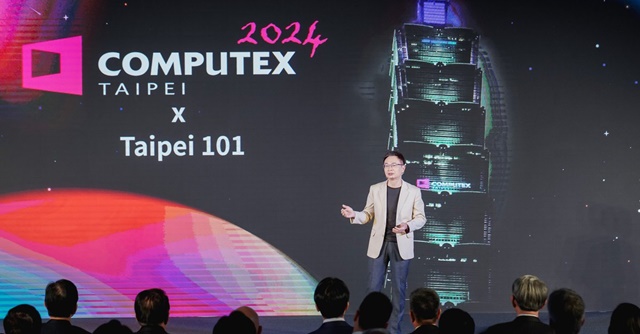
Computex 2024: Nvidia, AMD, Intel, lead AI and semiconductor innovations


The tech world turned its eyes to Taipei, Taiwan for Computex 2024, the biggest computing event of the year, where the latest in artificial intelligence (AI) and semiconductor technology took centre stage.
Top industry players unveiled their newest innovations and outlined their future paths, making significant announcements that set the tone for the industry's evolution. Let's dive into some of the highlights from Computex 2024.
Nvidia leads with AI Innovations
At the 2024 Computex Keynote, Nvidia CEO Jensen Huang unveiled major innovations, reinforcing the company's leadership in AI and high-performance computing.
The keynote highlighted the transformative role of AI in creating AI factories from data centres, leveraging accelerated computing for large datasets and AI model development. Nvidia’s new Blackwell platform, offering 1,000 times more performance than its predecessor, marks a significant leap in AI performance.

Nvidia's innovations extend beyond chips, with the MGX platform providing a modular design for diverse computing needs and the Spectrum-X Ethernet network optimized for AI factories. Spectrum-X enhances GPU-to-GPU connectivity and is already in production with global partners.
Additionally, Nvidia introduced NIM, a set of microservices for running generative AI models, now available to all developers. Accessible via Docker containers, NIM integrates with various tools and frameworks, and Nvidia offers free access for research and testing through its Developer Program
AMD introduces Ryzen AI 300 Series and EPYC Turin Processors
AMD, led by CEO Lisa Su, announced significant advancements in AI and high-performance computing during the Computex 2024.

AMD introduced the Ryzen AI 300 Series, built on the Strix Point architecture with Zen 5 cores and RDNA 3.5 graphics. This new lineup is designed for AI-driven tasks, offering exceptional performance and efficiency.
Additionally, AMD unveiled the fifth-generation EPYC server processors, codenamed Turin, also based on the Zen 5 architecture. These processors are targeted at hyperscalers and high-performance computing environments.
These announcements emphasize AMD’s focus on integrating AI capabilities into its processors to accelerate AI tasks, improve content creation, and enhance gaming experiences. The new Ryzen AI 300 Series and EPYC processors position AMD as a leader in the AI and high-performance computing market.
Intel unveils next-gen Lunar Lake processors and Intel Xeon 6 processors

Intel has unveiled its next-generation Lunar Lake processors, which promise enhanced power efficiency, a fourfold increase in NPU processing capabilities, a 50% boost in Intel Arc GPU speeds with the new Arc Battlemage architecture, and integrated on-chip memory. These processors aim to significantly improve performance for ultra-thin and light laptops by late 2024, featuring Intel’s first Copilot+ PC processors.
Intel also introduced the Intel Xeon 6 processors with Efficient-cores (E-cores), designed for significant rack density improvements and a 3-to-1 rack-level consolidation, reducing costs and saving space for enterprises.
In AI technology, Intel showcased its Gaudi AI accelerators and the OpenVINO software ecosystem, highlighting its commitment to enhancing AI capabilities for developers and businesses.
Asus reveals next-gen AMD Ryzen AI processors

Another highlight of the event was the unveiling of the next-gen AMD Ryzen AI processors. These processors feature the world's most powerful NPU, delivering 50 TOPS, and introduce the first-ever block floating-point NPU, which doubles the performance of 16-bit applications without sacrificing accuracy.
